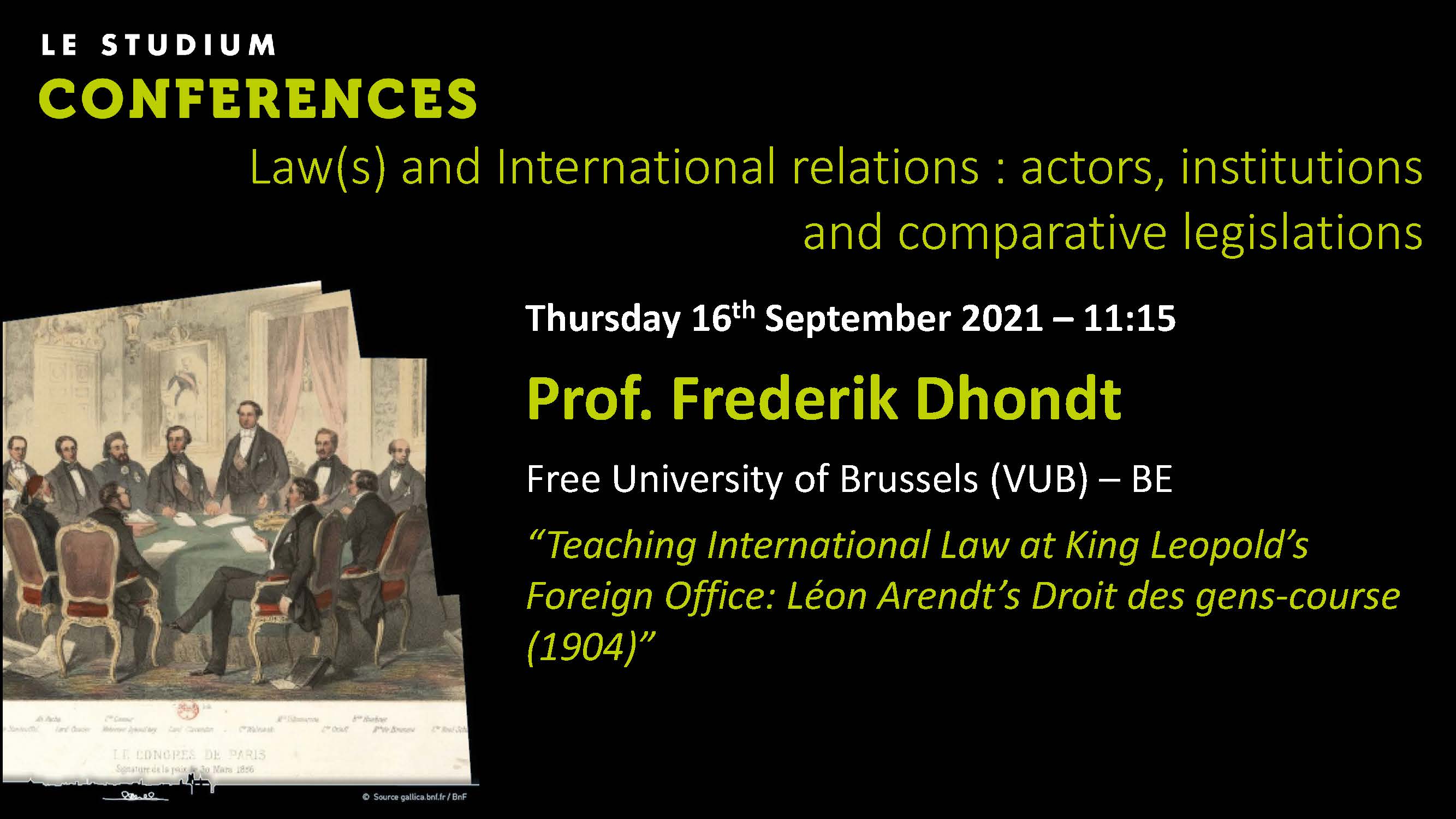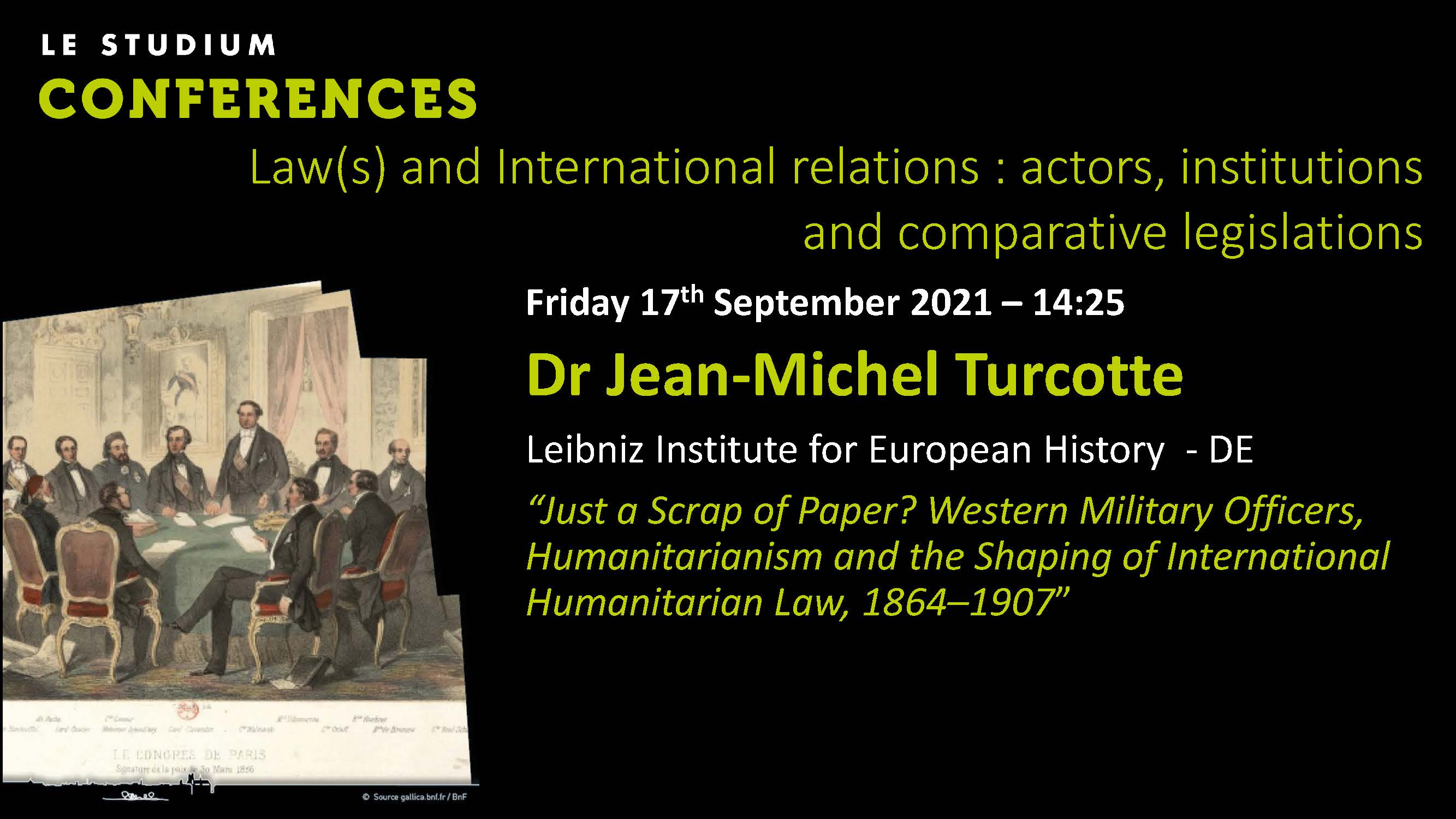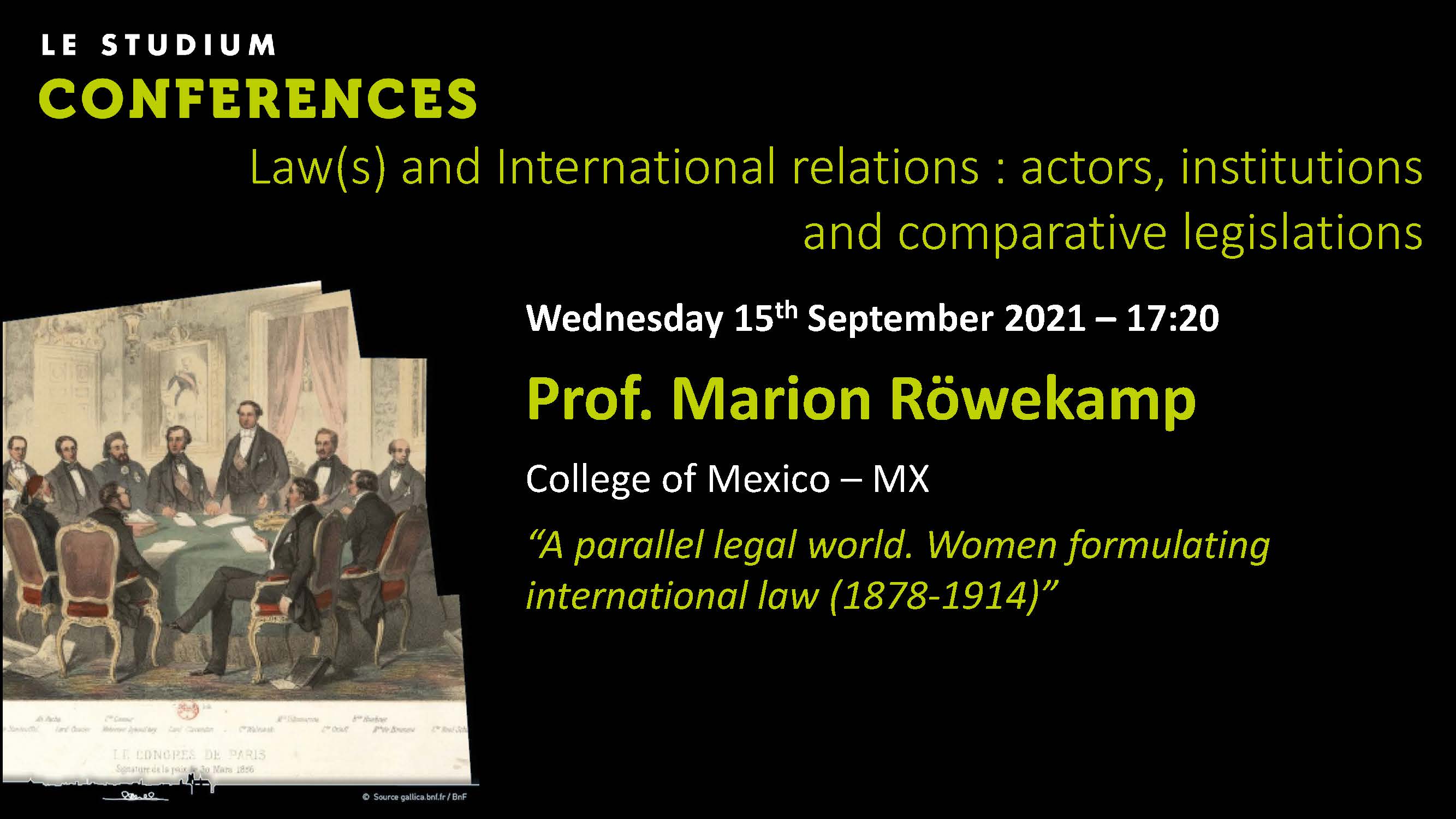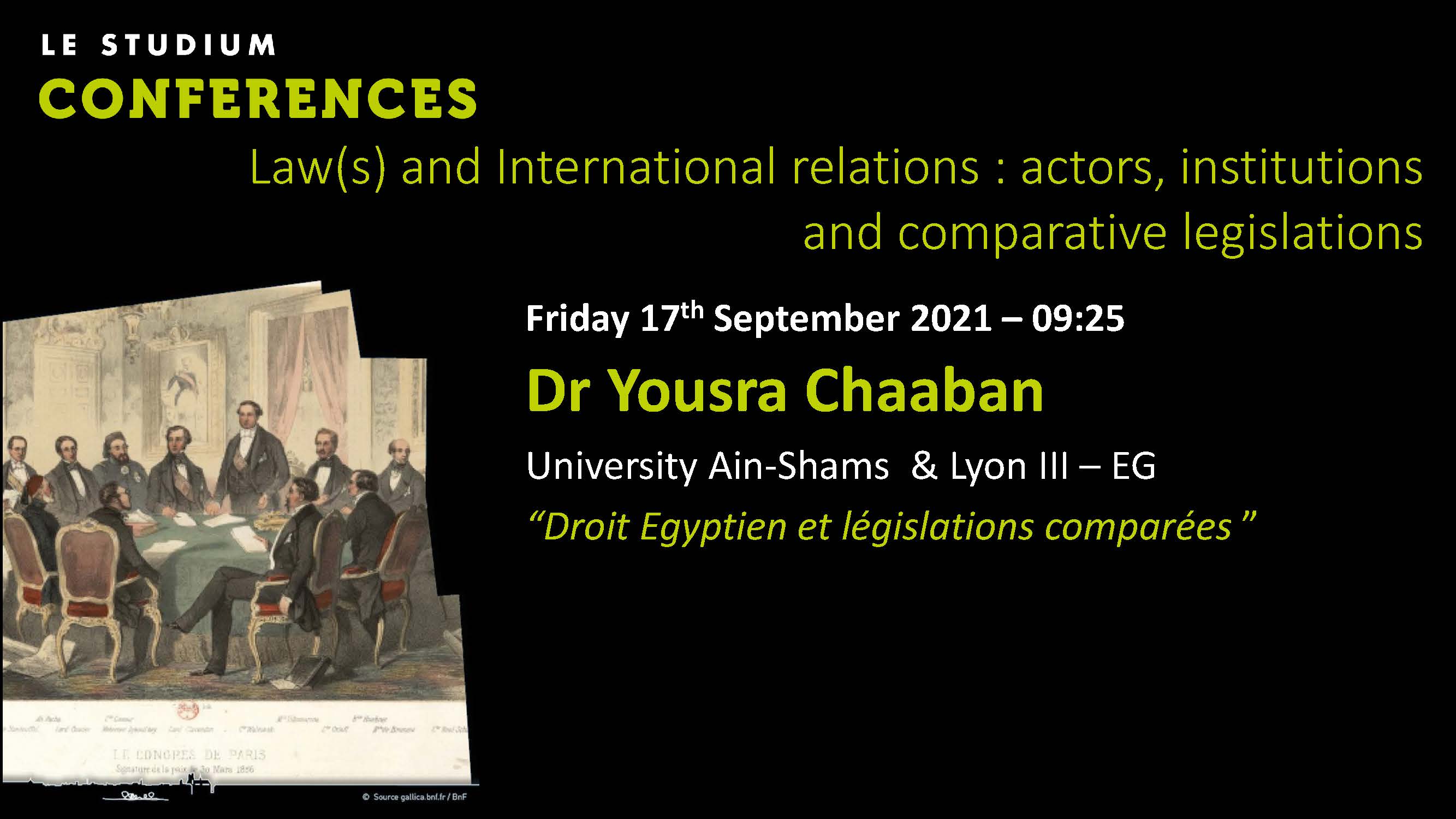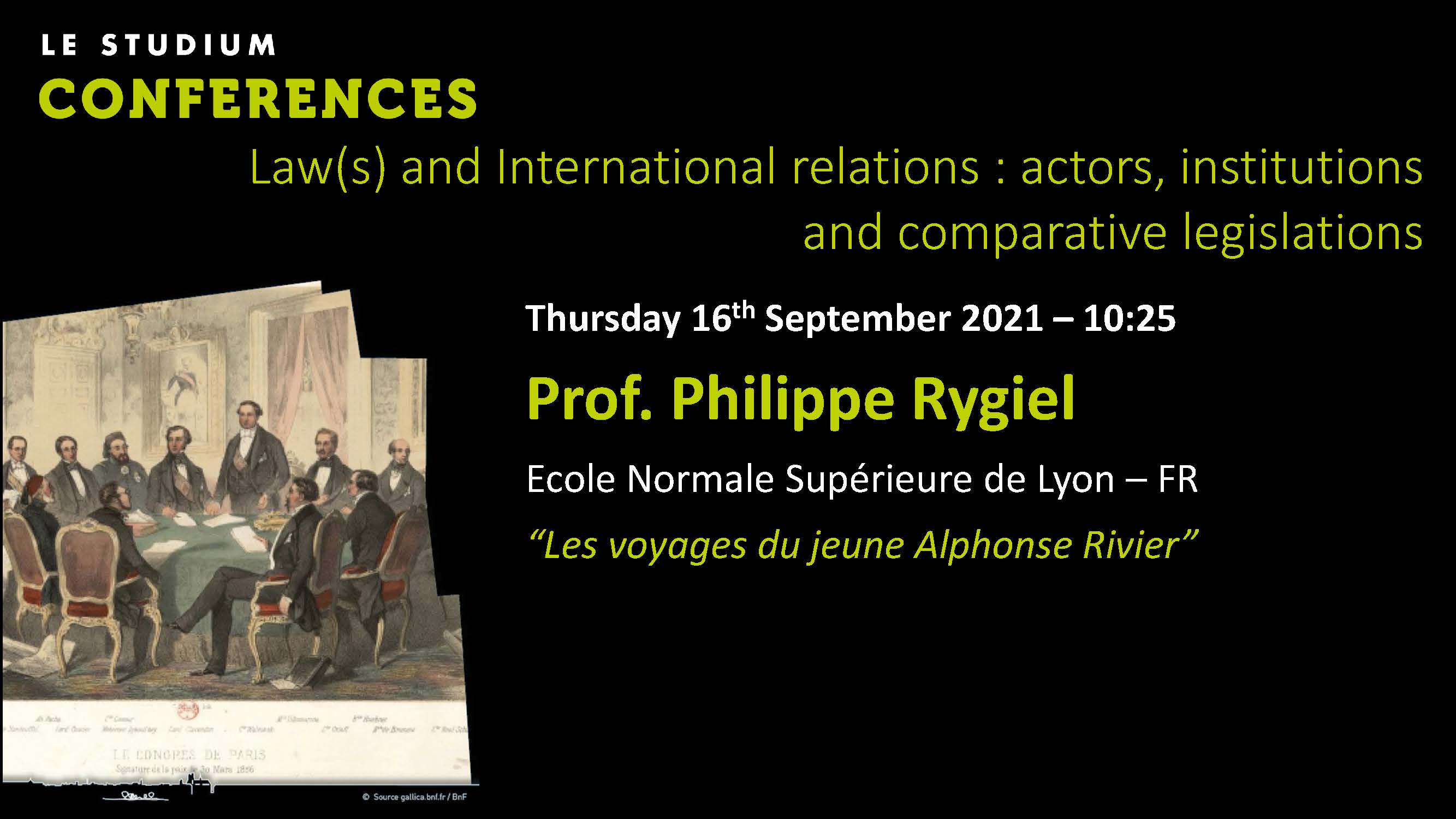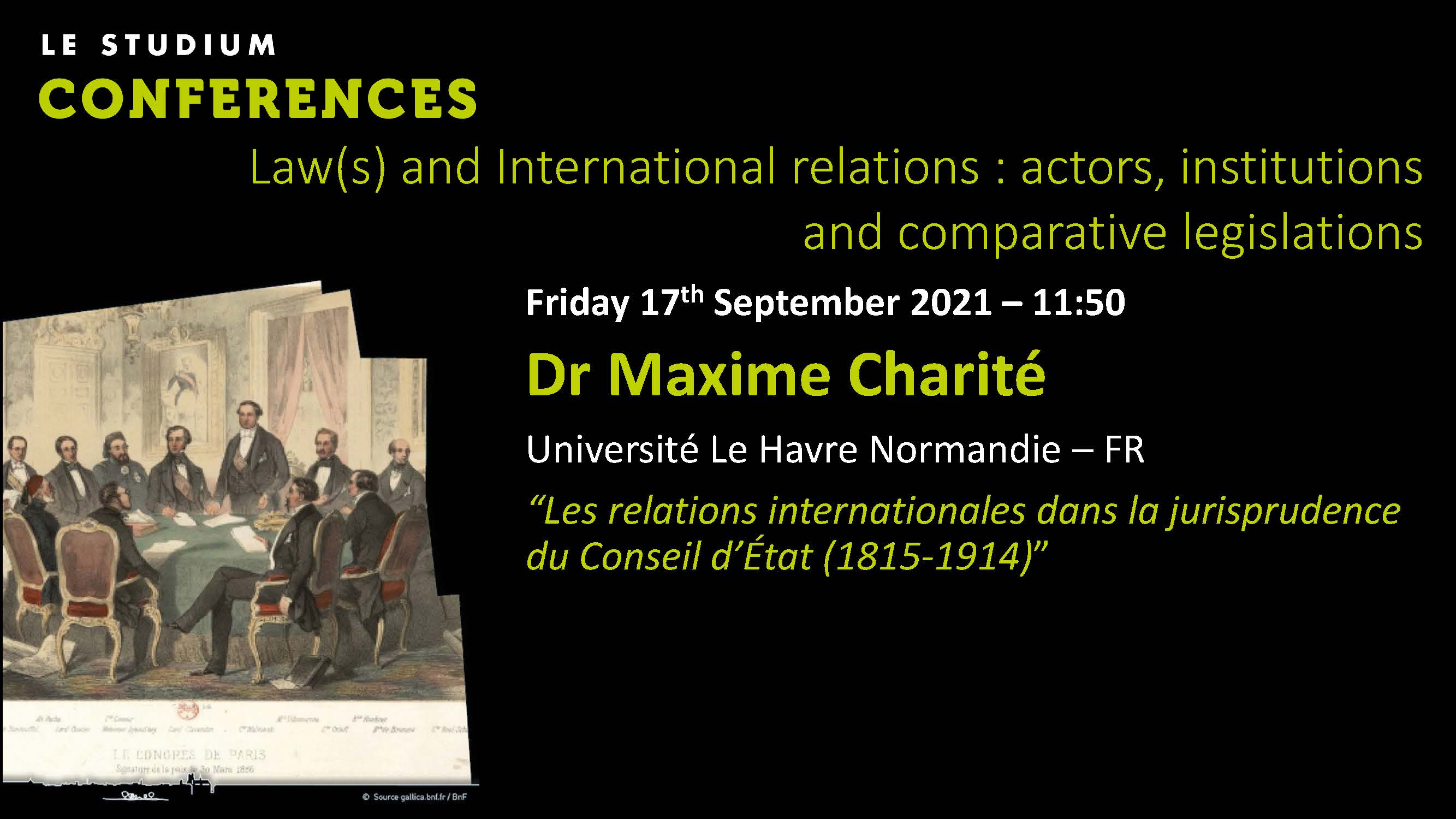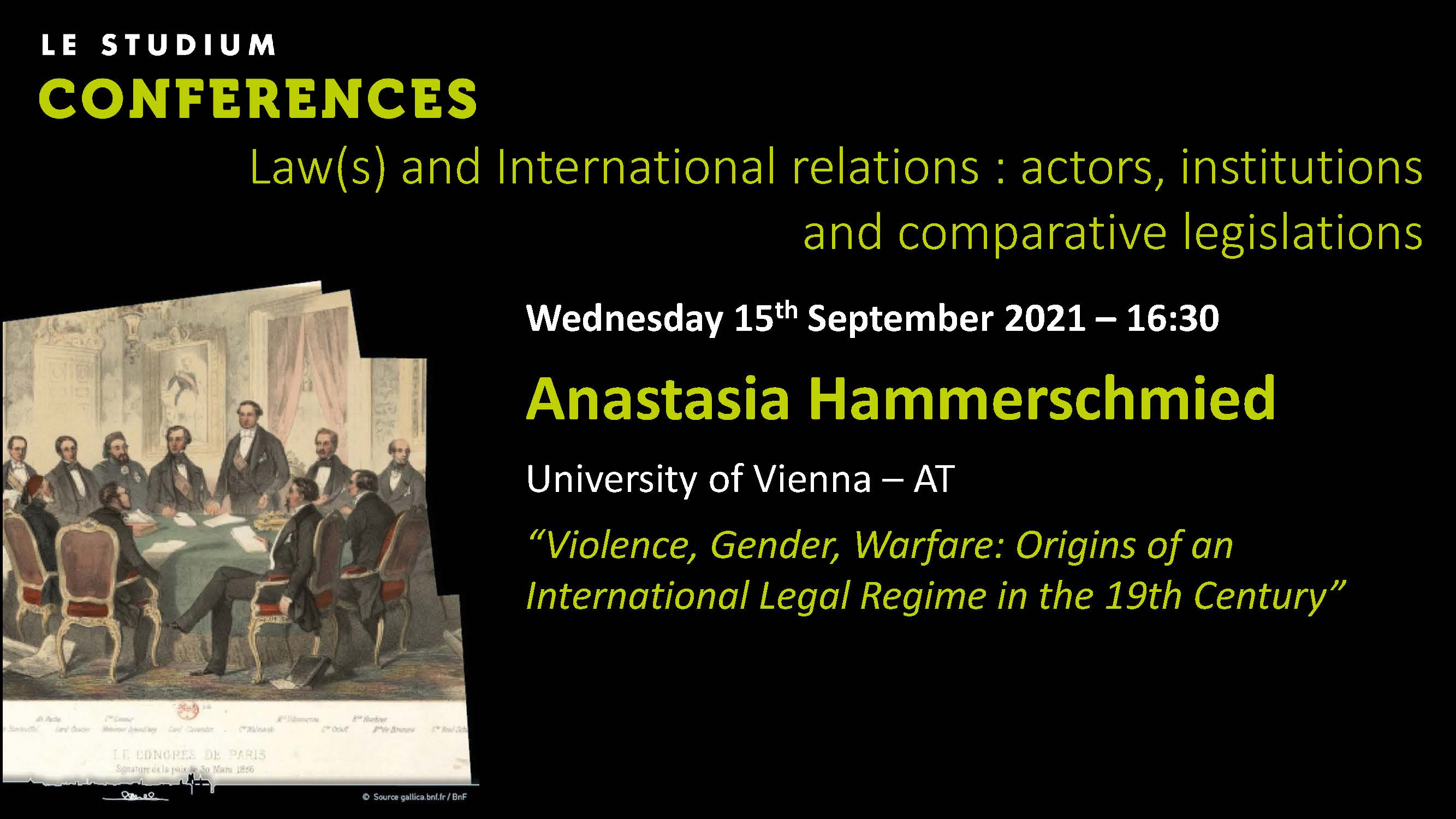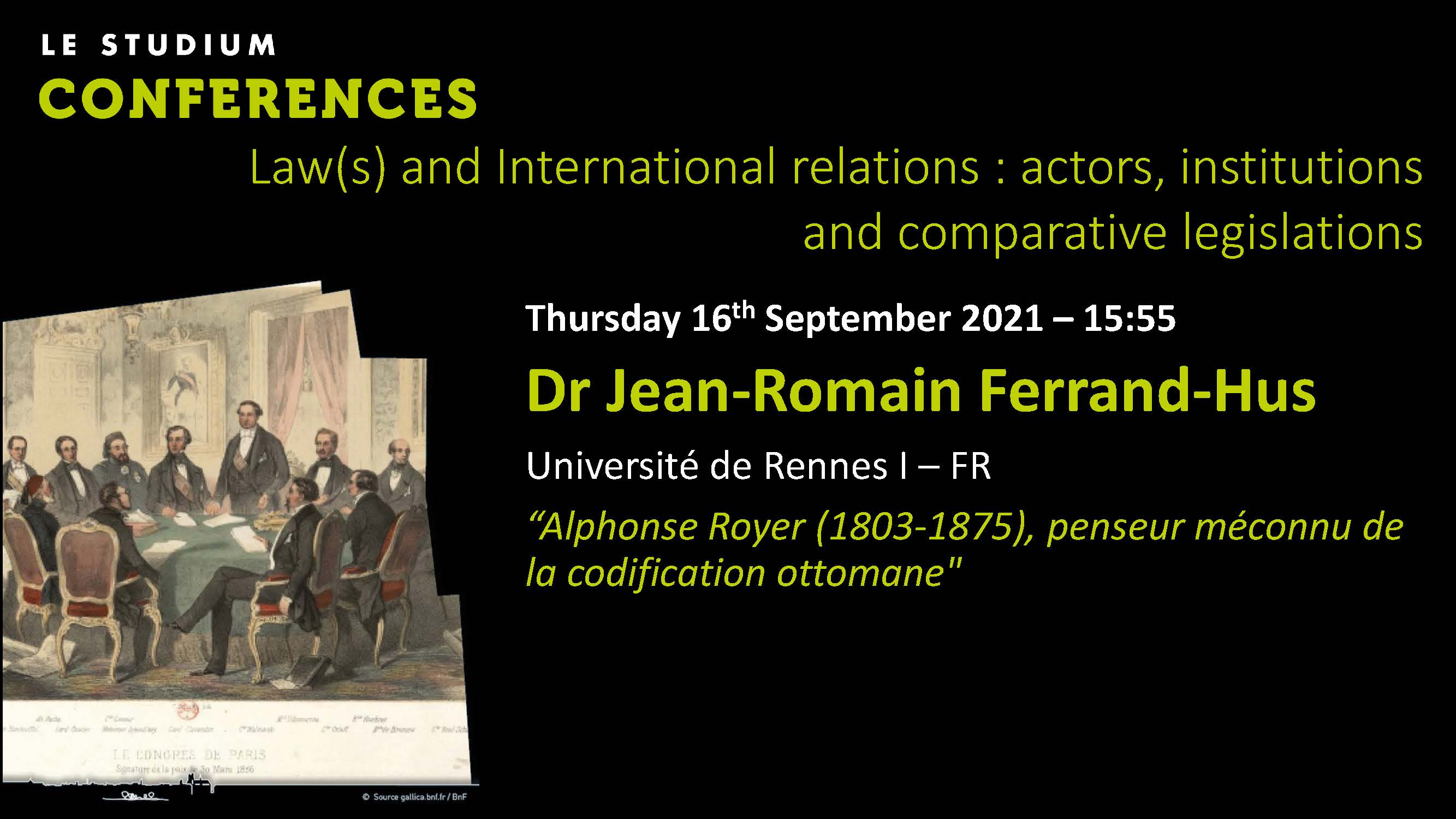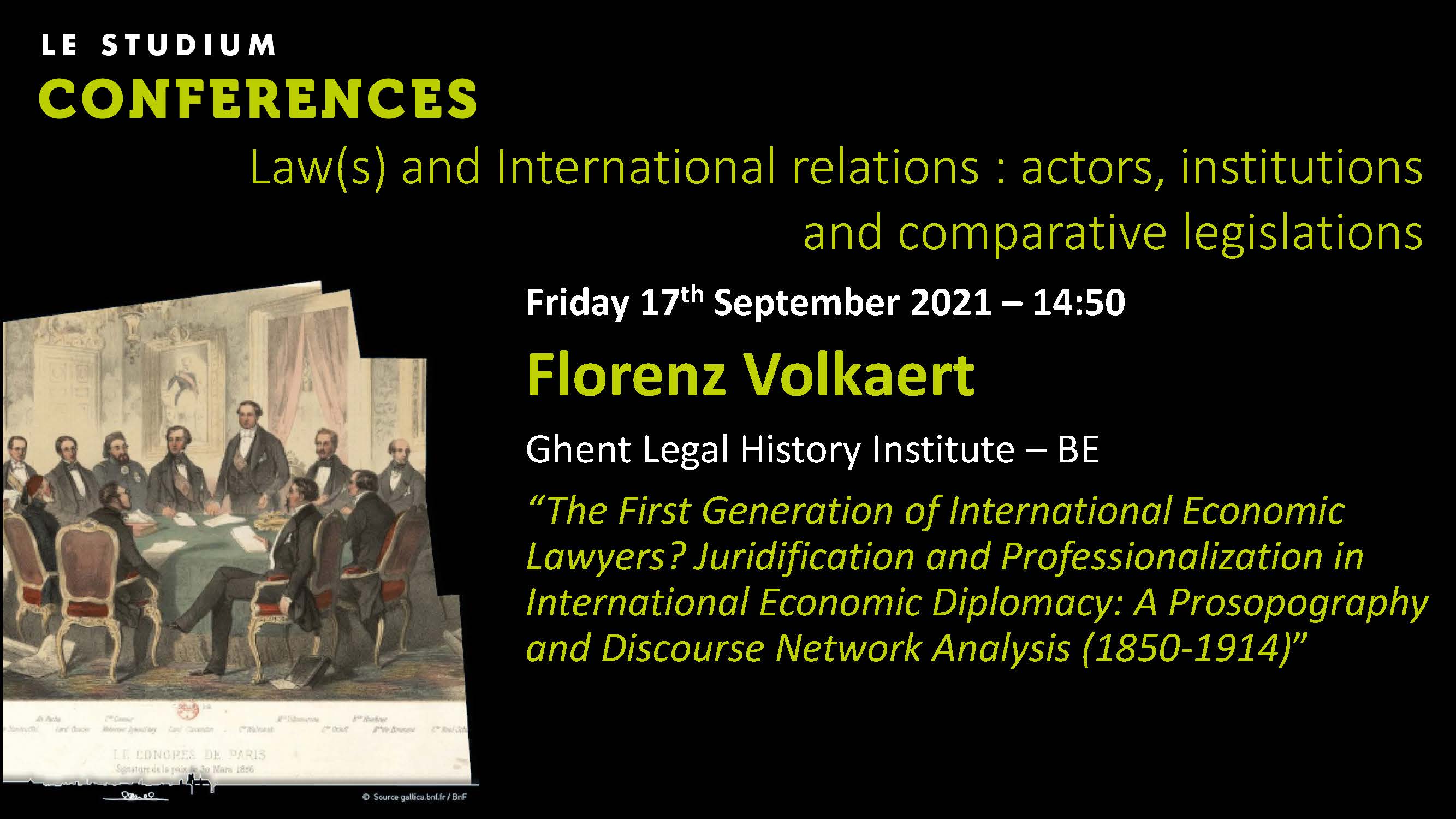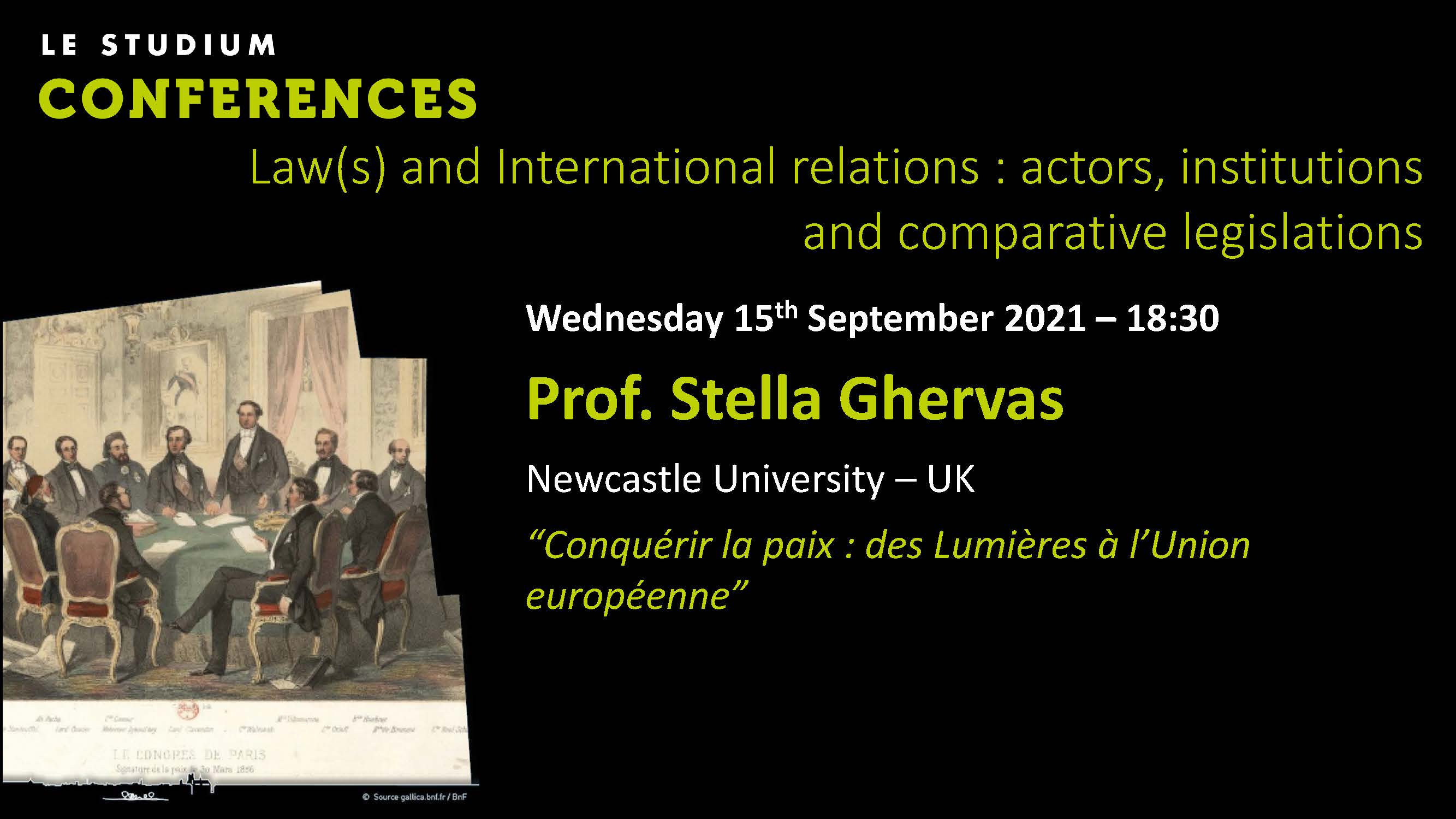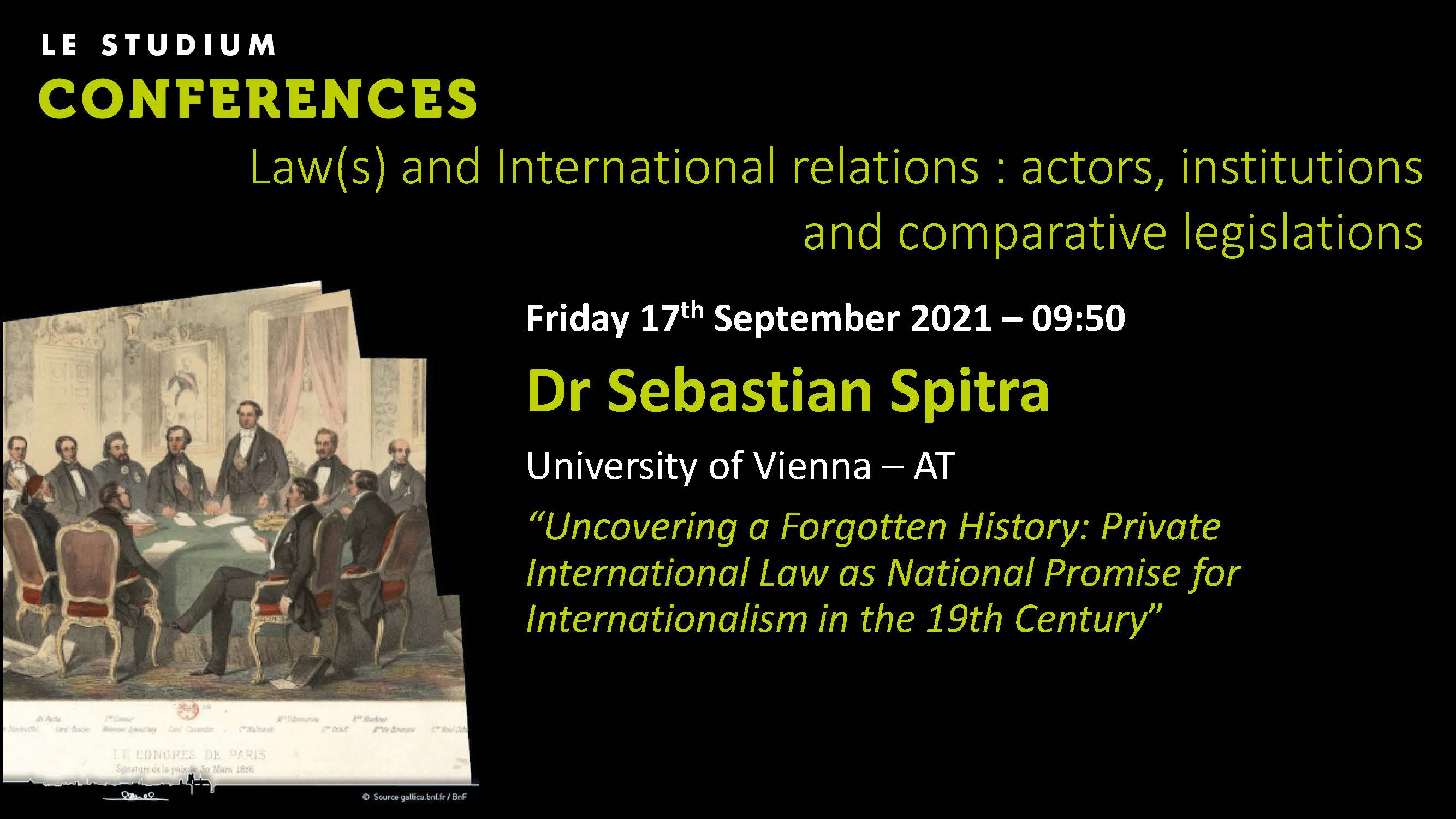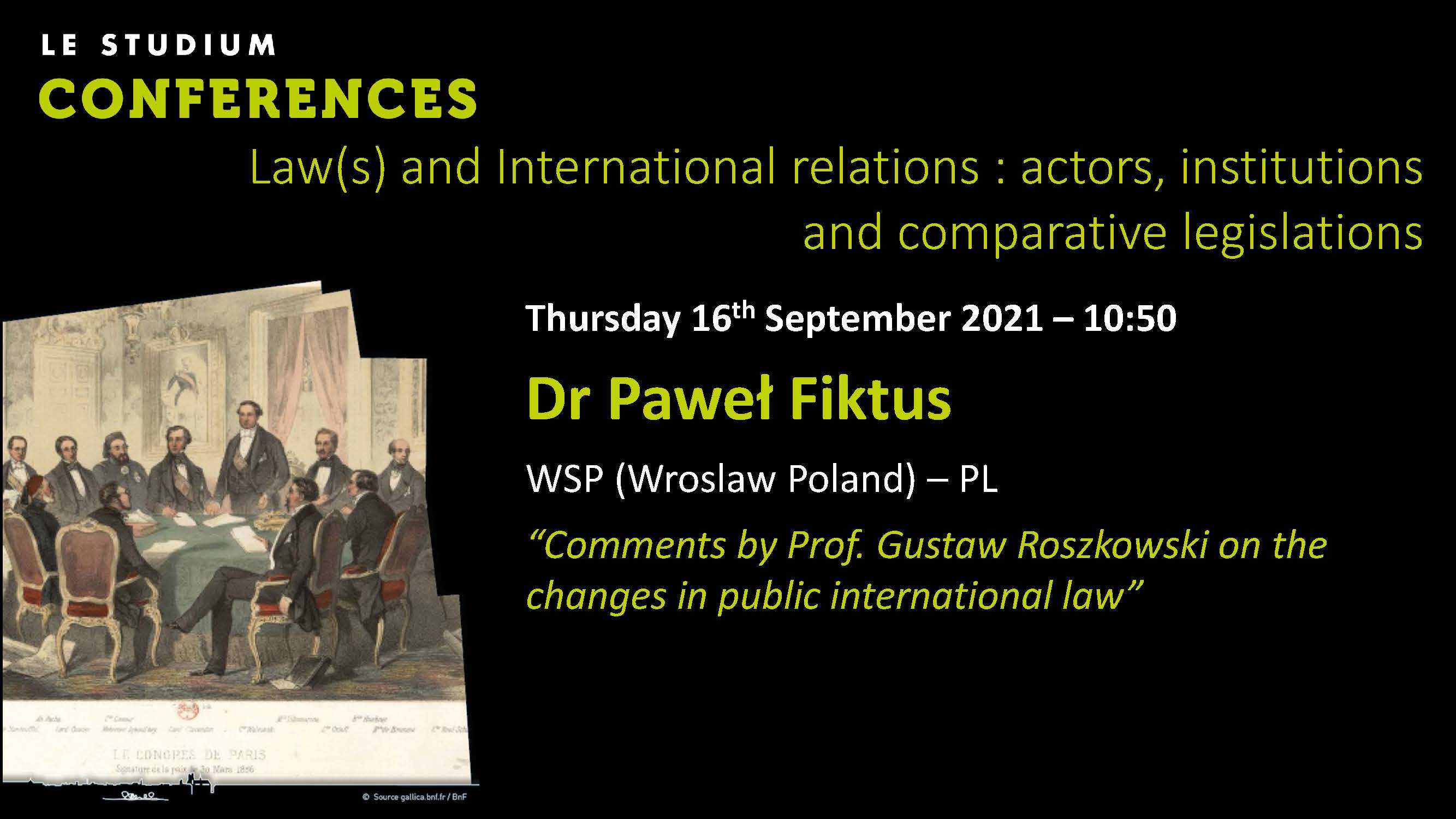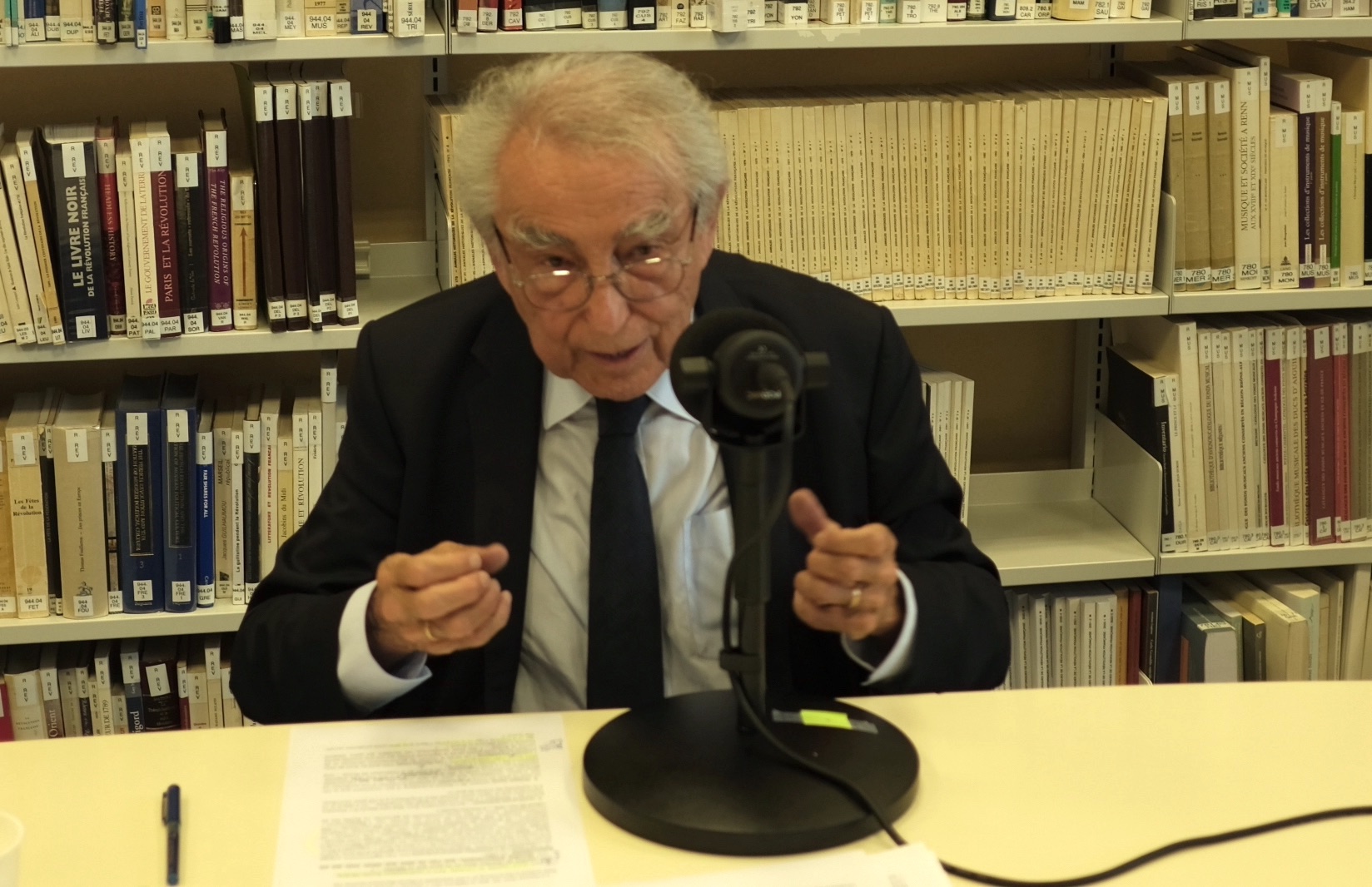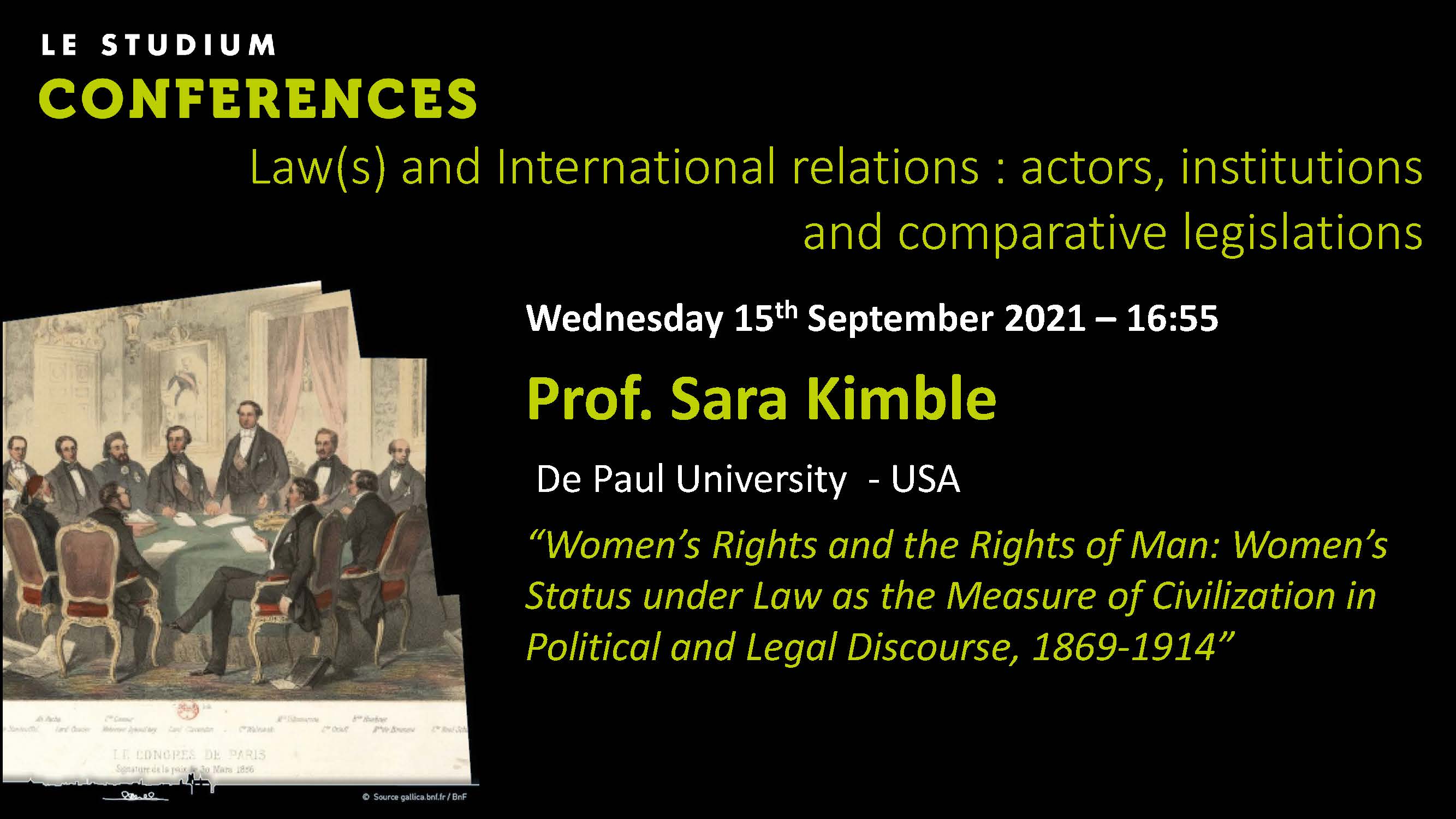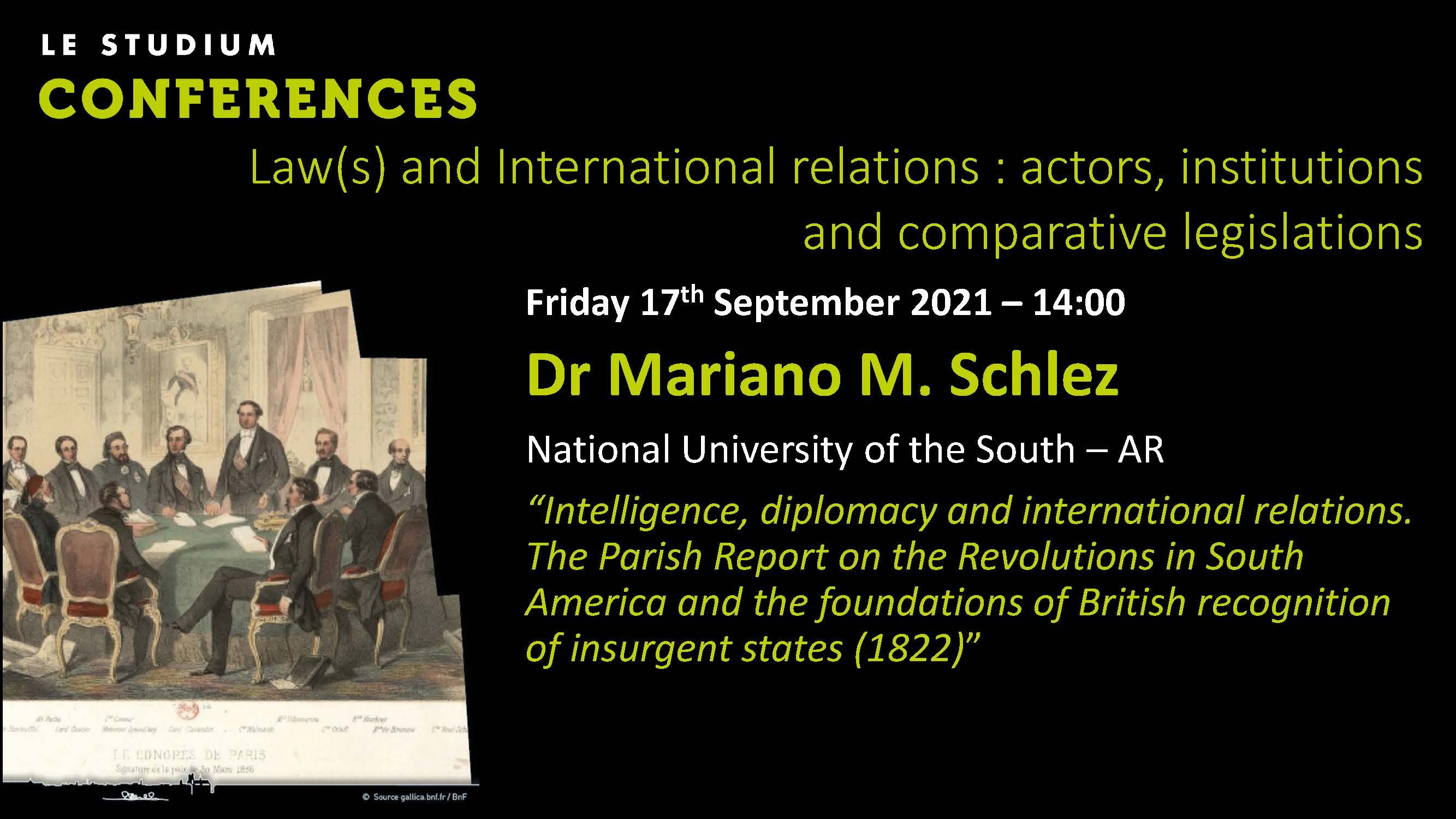Notice
Wouter De Rycke - Pacific Swissresponses to international instability in the early nineteenth century Jean-Jacques de Sellon (1782-1839) and the Société de la paix de Genève (1830-1839)
- document 1 document 2 document 3
- niveau 1 niveau 2 niveau 3
Descriptif
Althoughsocio-legal histories are on the rise, little scholarship has been devoted tothe legal aspects of the early to mid-nineteenth century pacifism. Those whohave taken notice of the so-called amis de la paix have overwhelmingly concentratedon the founding Anglo-American peace societies. This has left many Europeanpublicists and activists underappreciated, who also attempted to persuadepublic opinion of legal alternatives to war.
One such man wasthe Genevan aristocrat Jean-Jacques de Sellon (1782-1839), who founded in 1830the first peace society of continental Europe: the Société de la paix deGenève. For the next nine years, a continuous stream of letters and propagandaflowed from his Alpine home across Europe, to fellow peace friends, to intellectuals,and even to politicians and sovereigns. Unburdened by legal theory anddoctrine, this count attempted to revolutionize European politics and law byreviving the classic plan of Henri IV and Sully for a permanent internationaltribunal.
While no doubt‘utopian’ on several levels, the count de Sellon deeply enmeshed himself in thepolitics of his era, taking pains to reconcile personal ideology with politicalevents both in the troubled interior of the Swiss confederacy, as well as inits relations to the Great Powers. From individual religious beliefs to high politics,this unique Swiss friend of peace embodied an early continental-European expressionof the ideal of peace through law within the nineteenth century peace movement.
Thème
Dans la même collection
-
Frederik Dhondt - Teaching International Law at King Leopold’s Foreign Office: Léon Arendt’s Droit …
The private papers of Léon Arendt (1848-1924), director of Political Affairs in the Belgian Foreign Office from 1896 to 1912, offer a unique insider’s view on an often little-studied aspect: the in
-
Jean-Michel Turcotte - Just a Scrap of Paper? Western Military Officers, Humanitarianism and the Sh…
This presentation takes a look at my new book project focusing on the history of the Geneva Conventions. The first Convention for the Amelioration of the Condition of the Wounded in Armies in the
-
Marion Röwekamp - A parallel legal world. Women formulating international law (1878-1914)
The process of women formulating international law started with congresses held by the transnational women's movement. Here female specialists met, exchanged legal knowledge, collected and compared
-
Yousra Chaaban - Droit Egyptien et législations comparées
On the other side of the Mediterranean, at the end of the 19th century and at the beginning of the 20th century, international relations, and particularly French ones, played an important role in
-
Philippe Rygiel - Les voyages du jeune Alphonse Rivier
Alphonse Rivier (1835-1898) is a forgotten member of the generation of internationalists who participated in the institutionalization of international law. Author of treatises, translator of Tobias
-
Maxime Charité - Les relations internationales dans la jurisprudence du Conseil d’État (1815-1914)
Council of State case law appears as an original prism for understanding and measuring the relationship between international relations and law(s) between 1815 and 1914. During this century, this
-
Anastasia Hammerschmied - Violence, Gender, Warfare: Origins of an International Legal Regime in th…
"The honor and rights of the family ... must be respected", states Article 46 of the Hague Convention of 1899/1907, a phrase used by earlier studies on sexual violence in war to reject a
-
Jean-Romain Ferrand-Hus - Alphonse Royer (1803-1875), penseur méconnu de la codification ottomane
On 15 March 1856, as the Congress of Paris is opening, Alphonse Royer – a man of letters, an Orientalist and a traveller who had become director of the Imperial Opera – hands Napoleon III a note on
-
Florenz Volkaert - The First Generation of International Economic Lawyers? Juridification and Profe…
Contemporary international economic law is considered an autonomous subdiscipline of international law administered by an epistemic community of international lawyers and economists, separate from
-
Stella Ghervas - Conquérir la paix : des Lumières à l’Union européenne
L’Europe n’a guère connu de longs moments de paix dans son histoire. Dans cette conférence grand public, basée sur son dernier livre Conquering Peace : From the Enlightenment to the European Union
-
Sebastian Spitra - Uncovering a Forgotten History: Private International Law as National Promise fo…
The historical study of private international law is an often-neglected topic within the broader turn to the history in international law. Only a few works explore the dogmatic, intellectual and
-
Paweł Fiktus - Comments by Prof. Gustaw Roszkowski on the changes in public international law
The presented topic refers to the first point and will concern one of the leading but somewhat forgotten lawyer – Gustaw Roszkowski associated with the University of Lviv. In addition to his
Sur le même thème
-
Crimes de guerre
CotteBrunoBruno Cotte, haut magistrat français, qui a présidé durant plusieurs années une chambre de première instance à la Cour pénale internationale de La Haye, intervient sur la notion de « Crimes de guerre
-
Colloque exportations d’armements et droit public. Introduction et Pourquoi exporter ? (Partie 1/4)
COLLOQUE EXPORTATIONS D’ARMEMENTS ET DROIT PUBLIC OUVERTURE DU COLLOQUE Anne-Laure CHAUMETTE-VAURS (Maître de conférences HDR en droit public – CEDIN ; Co-directrice de l’UFR DSP) et Thibaud MULIER
-
Colloque exportations d’armements et droit public Table ronde Commerce des armes et règlementation,…
COLLOQUE EXPORTATIONS D’ARMEMENTS ET DROIT PUBLIC TABLE RONDE : COMMERCE DES ARMES ET RÈGLEMENTATIONS : QUELLE(S) PRATIQUES ? QUELLE(S)CONTRAINTE(S) ? Modérateur : Thibaud MULIER (Maître de
-
Colloque exportations d’armements et droit public. Décider et contrôler l'exportation (Partie 2/4)
COLLOQUE EXPORTATIONS D’ARMEMENTS ET DROIT PUBLIC Second Panel : DÉCIDER ET CONTRÔLER L’EXPORTATION Présidé par Arnaud SÉE (Professeur de droit public – CRDP) LA DÉCISION D’EXPORTER : DU CONTRÔLE
-
Colloque exportations d’armements et droit public. Encadrer l'exportation (Partie 3/4)
COLLOQUE EXPORTATIONS D’ARMEMENTS ET DROIT PUBLIC Troisième Panel : ENCADRER L’EXPORTATION Présidé par Jean-Louis Halpérin, Professeur, Directeur du CTAD EXPORTATIONS D’ARMES ET ÉTAT DU DROIT
-
Sara Kimble - Women’s Rights and the Rights of Man: Women’s Status under Law as the Measure of Civi…
This paper explores the conceptualization of women’s rights as a measure of the advancement of societies in comparative perspective through political and legal discourse from the 1860s to 1914. My
-
Jean-Romain Ferrand-Hus - Alphonse Royer (1803-1875), penseur méconnu de la codification ottomane
On 15 March 1856, as the Congress of Paris is opening, Alphonse Royer – a man of letters, an Orientalist and a traveller who had become director of the Imperial Opera – hands Napoleon III a note on
-
Florenz Volkaert - The First Generation of International Economic Lawyers? Juridification and Profe…
Contemporary international economic law is considered an autonomous subdiscipline of international law administered by an epistemic community of international lawyers and economists, separate from
-
Stella Ghervas - Conquérir la paix : des Lumières à l’Union européenne
L’Europe n’a guère connu de longs moments de paix dans son histoire. Dans cette conférence grand public, basée sur son dernier livre Conquering Peace : From the Enlightenment to the European Union
-
Sebastian Spitra - Uncovering a Forgotten History: Private International Law as National Promise fo…
The historical study of private international law is an often-neglected topic within the broader turn to the history in international law. Only a few works explore the dogmatic, intellectual and
-
Frederik Dhondt - Teaching International Law at King Leopold’s Foreign Office: Léon Arendt’s Droit …
The private papers of Léon Arendt (1848-1924), director of Political Affairs in the Belgian Foreign Office from 1896 to 1912, offer a unique insider’s view on an often little-studied aspect: the in
-
Mariano M. Schlez - Intelligence, diplomacy and international relations. The Parish Report on the R…
My work presents a description and explanation of the historical significance of the unpublished intelligence report "South America", written in 1822 by Woodbine Parish, clerk at the Foreign Office

